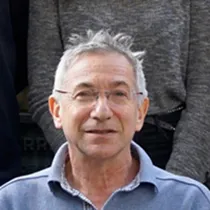- Accueil >
- Publications >
- Multiple Hotspot Mutations Scanning by Single Droplet Digital PCR
Multiple Hotspot Mutations Scanning by Single Droplet Digital PCR
Auteurs
Charles Decraene, Amanda B Silveira, François-Clément Bidard, Audrey Vallée, Marc Michel, Samia Melaabi, Anne Vincent-Salomon, Adrien Saliou, Alexandre Houy, Maud Milder, Olivier Lantz, Marc Ychou, Marc G Denis, Jean-Yves Pierga, Marc-Henri Stern, Charlotte Proudhon
Résumé
Abstract
BACKGROUND
Progress in the liquid biopsy field, combined with the development of droplet digital PCR (ddPCR), has enabled noninvasive monitoring of mutations with high detection accuracy. However, current assays detect a restricted number of mutations per reaction. ddPCR is a recognized method for detecting alterations previously characterized in tumor tissues, but its use as a discovery tool when the mutation is unknown a priori remains limited.
METHODS
We established 2 ddPCR assays detecting all genomic alterations within KRAS exon 2 and EGFR exon 19 mutation hotspots, which are of clinical importance in colorectal and lung cancer, with use of a unique pair of TaqMan® oligoprobes. The KRAS assay scanned for the 7 most common mutations in codons 12/13 but also all other mutations found in that region. The EGFR assay screened for all in-frame deletions of exon 19, which are frequent EGFR-activating events.
RESULTS
The KRAS and EGFR assays were highly specific and both reached a limit of detection of <0.1% in mutant allele frequency. We further validated their performance on multiple plasma and formalin-fixed and paraffin-embedded tumor samples harboring a panel of different KRAS or EGFR mutations.
CONCLUSIONS
This method presents the advantage of detecting a higher number of mutations with single-reaction ddPCRs while consuming a minimum of patient sample. This is particularly useful in the context of liquid biopsy because the amount of circulating tumor DNA is often low. This method should be useful as a discovery tool when the tumor tissue is unavailable or to monitor disease during therapy.




